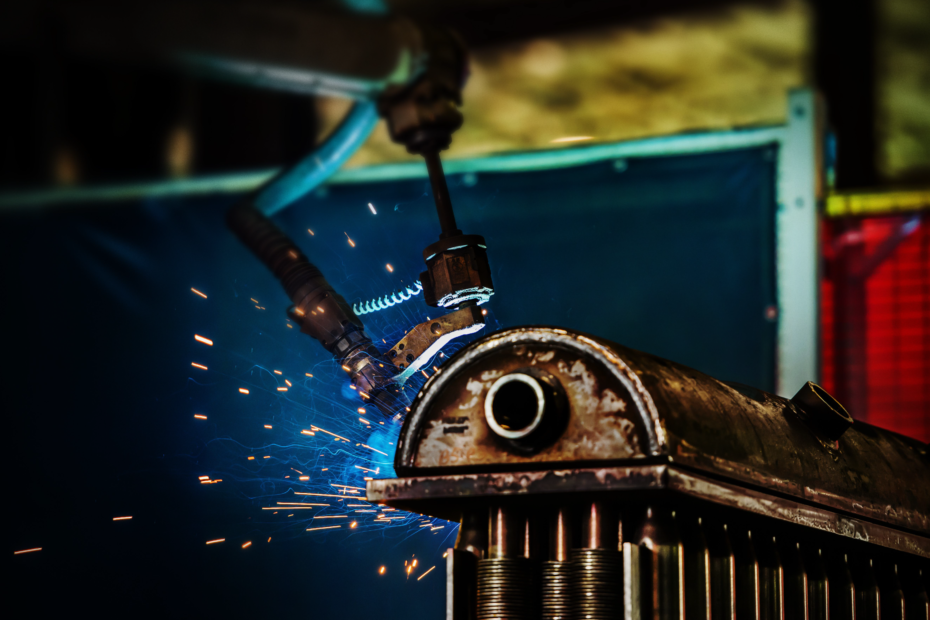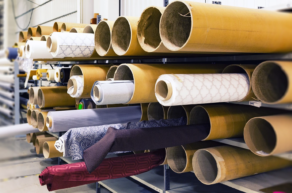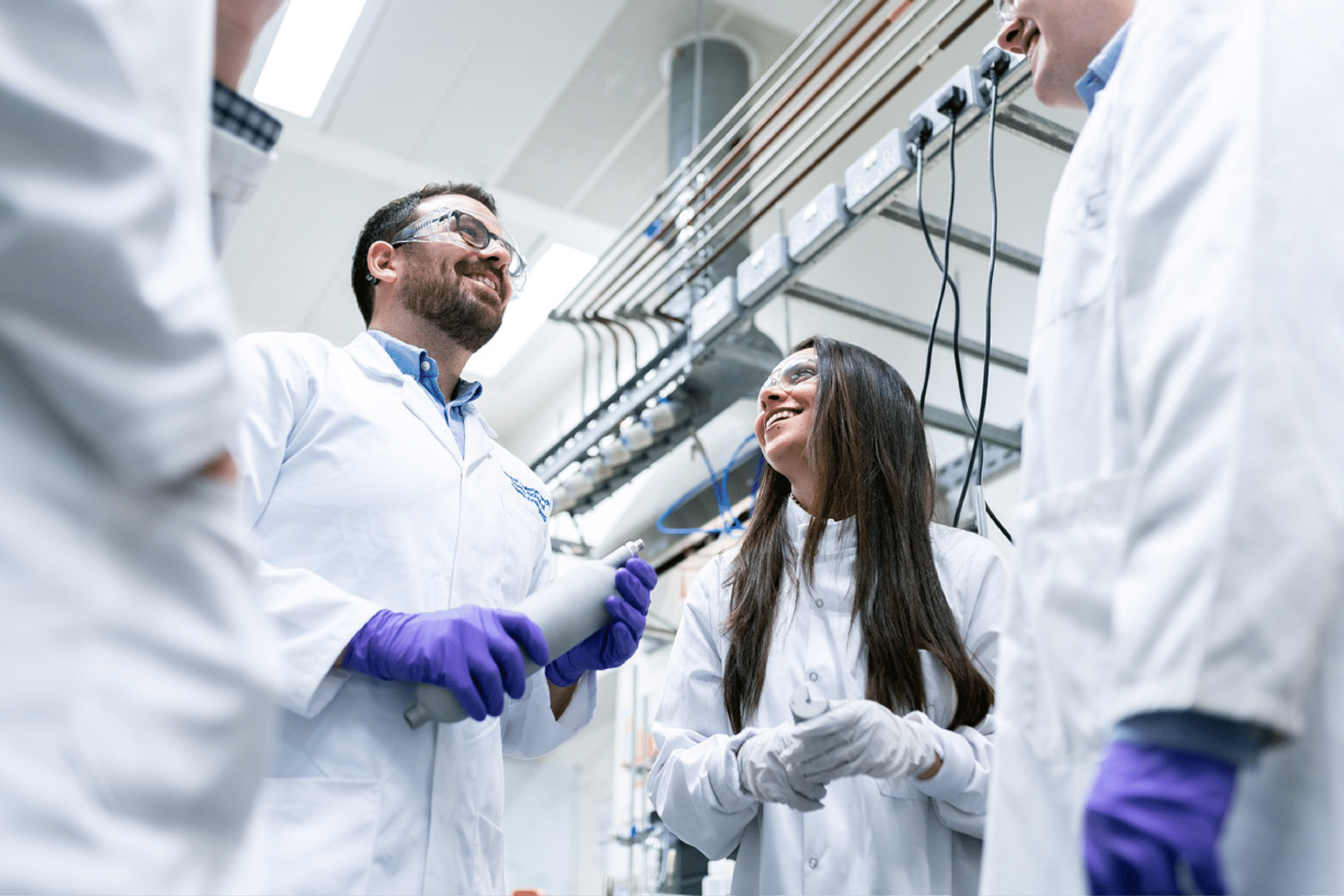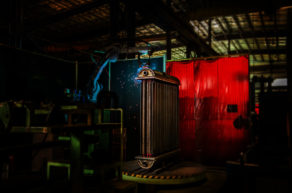Steam Boiler Guide for Tire Manufacturing
Because steam heat plays a critical role in the tire production process, choosing a reliable steam boiler is a must for tire manufacturers. The vulcanization and curing process for producing high-performance tires must be flawless and precise, whether you’re producing standard inner-tube tires or tubeless steel belt radials. Let’s take a look at how steam boilers are used in the tire industry, how they impact the tire manufacturing process, and what tire companies should look for when considering a new steam boiler.
Steam Boiler Challenges for Tire Manufacturers
While rubber tires cannot be manufactured properly without steam heat, tire makers generally face two difficulties when it comes to their steam boilers:
- Fluctuating workloads. The demand for steam in a tire plant may increase or decrease at different times per day, depending on when tires enter the curing process and how many are being cured. Unfortunately, most conventional fire-tube boiler systems take several hours of warmup time to produce steam. To reduce downtime during warmups, the boiler must therefore be kept online most of the time, even when steam is not needed–running up costly fuel bills in the process.
- Greenhouse emissions. The tire manufacturing process naturally releases by-products and pollutants, including harmful greenhouse gases. Steam boilers often contribute a significant amount of greenhouse emissions, often making it difficult for tire companies to comply with state and/or federal emissions restrictions.
How Steam Boilers Are Used in Tire Manufacturing
The primary use of steam boilers in tire manufacturing is the vulcanizing process — the curing of the rubber using steam heat. After the raw materials are combined to make the rubber compounds (eg., natural rubber, synthetic rubber, sulfur, carbon black, and other chemicals); after the various body plies are formed, and after the tire tread and sidewall rubber goes through the extruder; and after the tire components go into the tire building machine to form the tire itself; then the unfinished “green tire” is placed into the tire mold for curing. Here, steam heat is applied to raise the temperature of the tire to about 300 degrees Fahrenheit to harden the rubber during the final stage. This process must be precise in order to maintain quality control. Understandably, the steam boiler needs to be both robust and reliable to keep up with the demands of this process. The failure of a boiler could cause costly downtime for the entire operation.
How to Choose a Boiler for Tire Manufacturing
Understanding the challenges and demands of the tire manufacturing process, what should tire companies look for in a steam boiler? Here are some factors to consider.
Energy Efficiency
Since tire manufacturers are always struggling to reduce energy output and fuel costs, look for a boiler system that maximizes steam output on demand while minimizing energy consumption. Many tire companies are moving away from the conventional fire-tube boilers to modular, water-tube boilers, which can produce steam within minutes of start-up — conserving resources, saving fuel costs, and increasing equipment life.
Adapting to Fluctuating Demand
The optimal setup for tire manufacturers is a boiler system that adapts easily to fluctuations in demand–something that conventional boilers are notoriously bad at doing. Water-tube boilers can respond almost immediately to changes in demand in either direction. When boilers fire up when you need steam—and power down when you don’t—you can save thousands per year in energy costs.
Low Emissions
The lower the volume of greenhouse emissions produced by your boiler unit, the better. Look for a boiler system that is rated for low CO2 and NOx emissions to help keep your company in compliance. Modular water-tube boilers also perform well in this category, both by the nature of their design and the fact that they don’t have to run incessantly.
Miura Boilers, the Best Option for the Tire Manufacturing Industry
Taking into account the specific challenges and needs of the tire manufacturing industry, Miura boilers have a distinct advantage in helping tire plants run more efficiently and environmentally friendly. Let’s explore some of the advantages our boiler systems offer.
Cold-Start Design Reduces Non-Productive Time
Conventional boilers usually consist of large tanks requiring several hours of fire-up and shutdown time — during which time the facility remains non-productive. The alternative is to keep the boilers on constantly — a costly prospect, to say the least. In contrast, Miura boilers implement a once-through fin-tube design that allows the boiler to reach full steam from a cold start within five minutes of power-up. This enables the plant to begin production more quickly with less downtime.
Optimal Energy Efficiency
Besides the quick-fire design (which saves considerably on fuel costs), Miura Steam Boilers are designed with numerous other energy-efficient features. These include a reverse osmosis water purification system to reduce mineral scale buildup in the boiler, as well as a modular configuration that allows individual boiler units to power up and down in direct response to fluctuating demands. These features add up to significant savings in energy costs — up to 20 percent savings annually on average, and even more in some cases. In addition, Miura boilers are designed to be environmentally-friendly, emitting far less CO2 and harmful nitrogen oxides than their conventional counterparts — enabling manufacturers to lower their carbon footprint and meet increasingly strict environmental standards.
Compact Design
Miura boilers’ unique once-through design allows them to be more compact than conventional boilers, so they take up less space. This feature allows companies to make the switch to Miura without the added costs of building or renovating existing steam plant facilities. In many cases, they can even reclaim some of the unused space for other productive purposes.
Self-Diagnostic and Low-Maintenance Features
Another way Miura boilers help optimize industrial manufacturing operations is through their state-of-the-art diagnostic features. The boilers are equipped with a BL Micro Controller System, which provides real-time information on temperature, pressure, water quality, and other operational metrics. In addition, through advanced self-diagnostics, the boilers can send proactive alerts about issues so they can be addressed before they become problematic. The end result is little to no downtime, which improves the facility’s bottom line.
Environmental Friendliness
Miura boilers are rated at low to no CO2 and NOx emissions. If your company has an ethic of environmental responsibility or your state has emissions regulations to meet, Miura Boilers can meet even the most stringent emissions standards.





